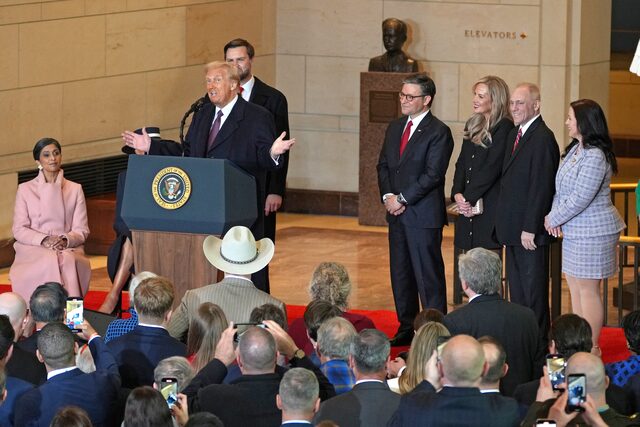Markets around the world displayed a mixed reaction to US President Donald Trump’s inauguration, with investors carefully weighing the new administration’s policy moves.
Despite the uncertainty surrounding his plans, some aspects of Trump’s approach have provided optimism, particularly as he refrained from imposing immediate tariffs, offering reassurance to global markets.
On Monday, Trump signed a series of executive orders, focusing on overhauling border, energy, and diversity policies. While he mentioned plans for 25% tariffs on Canadian and Mexican imports starting February 1, he opted not to act immediately, which helped calm market nerves. This restrained approach helped the US dollar rebound slightly after Monday’s losses, as concerns over the imposition of new tariffs eased.
Global stock markets experienced mixed trading results on Tuesday. In Europe, France’s CAC 40 gained 0.1%, and the UK’s FTSE 100 also saw a modest increase of 0.1%. Germany’s DAX remained unchanged. In Asia, Japan’s Nikkei 225 and Australia’s S&P/ASX 200 both showed small gains of 0.3% and 0.7%, respectively, while South Korea’s Kospi slightly declined.
The market’s muted response was attributed to a variety of factors, with some analysts seeing Trump’s inauguration as an opportunity for market optimism. Stephen Innes, managing partner at SPI Asset Management, noted that the absence of immediate tariffs was a positive development, easing fears of a sharp escalation in trade tensions.
“In a twist that calmed nerves across global markets,” he explained, “President Trump revealed he would not, contrary to expectations, roll out new tariffs immediately.”
Trump’s “America First Trade Policy” indicates a broader reassessment of US trade practices, potentially focusing on addressing long-standing trade imbalances. While some analysts expressed concern about the potential for future tariff hikes, the delay in immediate action was seen as a positive by many market observers.
Although tariffs on Canada and Mexico remain a possibility, the decision to wait before taking further steps has provided some stability in currency markets. The Mexican peso and Canadian dollar weakened as concerns about trade tensions persisted, but the absence of new tariff announcements helped avoid deeper declines.
The energy sector is another area poised to benefit from Trump’s policies. His administration’s focus on enhancing domestic energy production has raised expectations for increased investment in the US oil and gas industries. Analysts, including Nigel Green, CEO of Devere Group, expect US energy companies to gain significantly from this policy shift, with reduced regulatory barriers likely leading to higher profitability. This shift could also have broader implications for global energy prices.
Despite some lingering concerns about Trump’s approach to China and other global trade relations, there is optimism regarding his pro-business stance. The upcoming week will feature a busy earnings calendar, with key results due from companies like Netflix, 3M, and United Airlines, giving investors further insight into the effects of the new administration’s policies on corporate performance.









